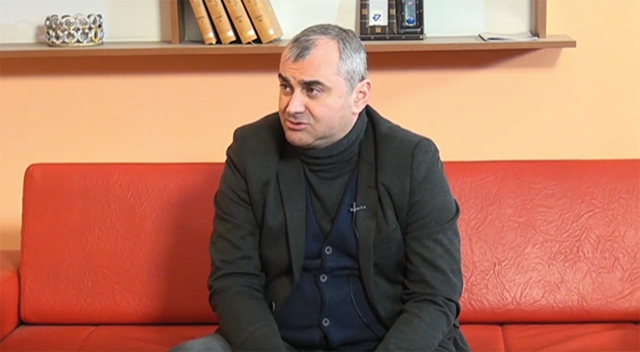NCDC Imereti Head on COVID-19 & Whether Georgia Is Worthy of All the Praise
Interview
International media outlets, among them EurActiv and bne IntelliNews, have written about the unlikely success story of Georgia, a small country in the Caucasus that has handled the coronavirus so much better than more developed states. In a remote interview, GEORGIA TODAY asked Gocha Giorgidze, the Head of the National Center for Disease Control (NCDC), Imereti Office, to talk about the COVID-19 in Georgia, how the country has managed it so far and how ready the country is for what might be coming.
“It’s true that the situation we have today is extraordinary, and despite the deep professional intellect of our medical society, and their rich experience, the knowledge each one of us has about the present circumstances is merely theoretical. This is a fight against an invisible enemy, a fight for which theoretical knowledge alone is not enough, and a fight that demands daily practice of dealing with clinical cases and prevention measures,” Giorgidze tells us. “Each individual has to show flexibility, quick-thinking and a willingness for acts of bravery.
We must not let our invisible enemy influence us emotionally and this way cause the disorganization of our thinking. As soon as the illness kicked off in 2019 in China, our country started preventive measures”.
Giorgidze notes that the NCDC had an initial strategy to isolate Chinese citizens that were arriving from China and monitor them while in quarantine. Then they put monitoring checks to work at border checkpoints to quickly react to the most alarming cases.
“Practically, it is all thanks to the preventive measures and the right strategic work of the public health system that the country has, at this time, 77 cases,” he says.
The protocols of laboratory studies were worked out operatively. “When many European states had not yet implemented laboratory diagnostic methods, the NCDC Lugar laboratory, and then the regional laboratories of Imereti and Adjara, started studies into coronavirus infections. This improved the quality of the timely response and allowed for the operative study of cases,” Giorgidze notes.
In Imereti, he says, two infections clinics are functioning, while one additional clinic has an infections department. “According to need, all of Imereti’s hospitals have the potential to apply infection control mechanisms correctly and deal with cases effectively,” he states.
How many patients can be taken in at this stage in western Georgia? How many ventilation machines are available?
At the first stage, in the west of Georgia, four hospitals of an infections profile have been chosen and one that is multi-profile. Their resources at this time of slow-spreading are absolutely enough to deal with possible cases.
Have medical staff been trained to make the fight against COVID-19 more effective?
The state has worked out protocols for medical personnel, based on the recommendations of the World Health Organization (WHO), and our specialists have also held phone meetings with their Chinese colleagues to find out more about their experiences. Years of experience in fighting numerous serious illnesses with respiratory symptoms have given us a lot of knowledge to work with. There are probably not many countries that are lucky enough to have such high profile managers and practical scientists as Amiran Gamkrelidze, Tengiz Tsertsvadze, and Pataa Imnadze.
Are the clinics supplied with individual protective equipment, such as medical masks?
While it is true that individual protection equipment is the routine responsibility of the management of each clinic, and it is equipment of bare necessity that they should have at all times, we have a situation in which their own resources were not enough. Therefore, the Ministry [of Health] made the decision to create a stock which is used to supply the personnel in clinics and quarantine spaces to ensure their safety.
If the spread of the virus really kicks off, and the situation worsens, can we expect a shortage of qualified medical staff?
It’s hard to make that prognosis. We need to remain hopeful that the measures we have taken in order to curb the spread will be completely effective and we will not have a fast increase in cases. I’m also hopeful that the qualification of our personnel and their knowledge when using individual self-protection equipment will prevent them getting infected and contributing to an internal spread in the hospitals. In this case, I’m confident when I say that the resources are enough and a collapse is not expected.
International media has raved about Georgia’s success in fighting coronavirus. How effective would you say the Georgian government’s strategies are?
The results reflect the effectiveness of operating and approach. It’s important to always remain one step ahead, and we are successful at that more often than not. It’s exactly the result of this that at this stage we’re still talking about prevention and cutting off the spread of the virus, and about potentially dealing with cases during an uncontrolled spread of the virus. However, society plays the biggest part in how successfully our measurements pan out, so I want to urge everyone to follow the advice of our specialists and #stayhome.
By Nini Dakhundaridze











